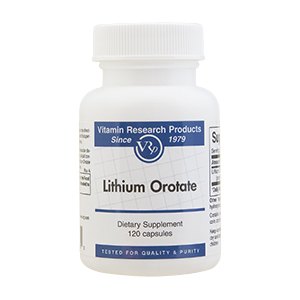And Now: Peak Lithium

If you want to play the commodities, forget pork bellies, soybeans or gold. Get into lithium. Not to treat the bipolar disorder exposure to the commodities market could trigger. Lithium to power cars. The Japanese Ministry of Economy, Trade and Industry figures that global lithium demand will more than triple from about 92,000 tons in 2010 to 310,000 tons in 2020. Who’s gobbling up the stuff? The automobile industry is expected to use 60 percent of the global lithium supply in 2020, up from less than 5 percent this year. No wonder there is a run on the material.
Mitsubishi signed a long-term deal with Galaxy Resources Ltd., reports The Nikkei [sub]. Galaxy owns a lithium mine in southwestern Australia that sits on 16 years’ worth of lithium. The lithium ore is shipped to a plant near Shanghai that will make the lithium carbonate needed for batteries
Japanese Itochuwill invest in a U.S. company that extracts lithium from underground water used in geothermal power generation. Annual production is expected to reach 16,000 tons in three or four years.
Mitsui has signed an exclusive lithium sales contract for Japan, China and South Korea with a Canadian mining company.
Toyota Tsusho plans to mine lithium in Argentina starting in 2012. The output should mainly go into Toyota car batteries.
If you gamble on lithium, you basically gamble on the success of plug-ins. If they take off, there will be a surge in lithium demand. The capacity of batteries in plug-ins must be much larger than in hybrids. If plug-ins don’t take off, well, there still remains the medical application.

Bertel Schmitt comes back to journalism after taking a 35 year break in advertising and marketing. He ran and owned advertising agencies in Duesseldorf, Germany, and New York City. Volkswagen A.G. was Bertel's most important corporate account. Schmitt's advertising and marketing career touched many corners of the industry with a special focus on automotive products and services. Since 2004, he lives in Japan and China with his wife <a href="http://www.tomokoandbertel.com"> Tomoko </a>. Bertel Schmitt is a founding board member of the <a href="http://www.offshoresuperseries.com"> Offshore Super Series </a>, an American offshore powerboat racing organization. He is co-owner of the racing team Typhoon.
More by Bertel Schmitt


































Comments
Join the conversation
I can't believe they actually sell lithium orotate as a dietary supplement. Orotate is not a vitamin - there is a synthetic pathway for it, so no need to supplement it. Lithium is of course effective in some patients with bipolar disorder, but the therapeutic dosage range is very narrow - a bit to little is useless, and a bit too much is toxic. It is totally unsuitable for self-medication. Some regulators must be sleeping at the wheel.
Somehow between the stock market and the housing market I'm not surprised that the U.S. is about to hit peak Lithium. Re Bolivia - I read a very interesting article about Bolivia's lithium in the New Yorker. Lots there but there are a few problems in getting it. 1. Bolivia doesn't want foreign investment as there was recently a scandal about natural gas agreements that gave away too much profit. 2. Bolivia is landlocked and although it would be a short trip across Peru to an ocean port, political relations between the two countries are likely to prevent any agreement on transporting lithium through Peru from a long time. 3. The current President doesn't want to export the lithium as a raw material.... he wants to become a battery producer and export those. Recall that he wants to do this without any foreign investment. A very interesting article, worth reading: http://www.newyorker.com/reporting/2010/03/22/100322fa_fact_wright
Haha! Finally! That old tube of lithium grease in Dad's toolbox will be worth something!
This is bound to happen when you go from using something as abundant as oil to something as sparse as lithium. They're called rare-earth metals for a reason right? Also I'm wondering if Bolivia is really more stable than Afghanistan. Both countries are hell-holes, but I think I'd rather be in Afghanistan where at least I know there are a few thousand Marines around somewhere.